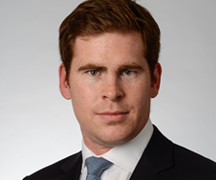Career Summary
I joined Hume Brophy in 2008 and became Managing Director London in 2013. Previously, I worked at a number of other communications agencies in London and at one of the large management consultancies. I also spent time at the European Commission, lectured in European Politics and Economics and co-founded a magazine in China.
What academic/professional qualifications do you have?
Masters in History from Trinity College Dublin, including a year at Université Paris Sorbonne. I then carried out a Postgraduate Research Scholarship in History & Politics at Boston College before returning to Dublin to UCD to for a further Masters, and M.Econ.SC, Economics & Public Affairs
How did you get into public affairs?
I’ve always been interested in the place where politics, public opinion, business and media meet. It represents a fascinating blend of disciplines and converging priorities. It is where the big issues get decided. The time I spent at the European Commission and the range of responsibilities I had there helped to focus my mind on public affairs. But really I thank current Secretary of State for Environment, Food and Rural Affairs, Liz Truss MP, who hired me into the industry in London from the EU!
What does your current role entail on a day to day basis? As Managing Director, how do you split your time between managing the business and client work?
I enjoy my role so much because of the variety it provides; no two days are the same. For me, a large part of this enjoyment stems from being heavily involved in client work. I’m very hands on, giving clients around ¾ of my time, which I think is vital to driving results and ensuring client satisfaction – two key elements of our ethos at Hume Brophy.
What are the challenges facing the consultancy sector in the public affairs industry?
The perception of the industry by external stakeholders.
Which campaign/issue are you most proud to have been involved in?
I’ve been a part of so many great campaigns with some really talented consultants but there are some issues that stay with you. The cancer charities that we currently work with would be a good example of that – they bring home the value of the work you’re doing on a daily basis. Similarly, working with UN Women UK on the hugely important issue of the elimination of violence against women and girls was extremely rewarding campaign to be a part of.
What do you enjoy about working in public affairs?
Public affairs offers me variety, a daily challenge, the opportunity to fully understand often extremely complex business issues faced by clients and a means to meet an extraordinary cross section of interesting people.
You spent a year in the European Commission: what insights did this provide?
The European Commission is an institution full of hardworking, talented, multilingual people, however, there is a definite disconnect between EC officials and those on the ground in Europe.
What’s the best piece of advice you’ve ever received?
One of my old bosses told me that you don’t get handed responsibility, you have to take it. Sounds a bit melodramatic but it means that if you really get a grip on an issue you become the go to person on that issue for clients and colleagues. We advocate this at Hume Brophy. We see providing real opportunity for progression and promoting from within as important to retaining our strong culture and developing a high calibre team.
How important is being politically active to a career in policy and public affairs?
It can be useful, but it’s not vital. I’m not politically active myself, but this is in contrast to a high percentage of the Hume Brophy team. What’s more important is a demonstrable depth of understanding and a passion for the industry and for clients.
What did you learn from your experiences in Boston, the Sorbonne and China?
Being surrounded by a different culture in a country where you don’t know anyone and you don’t speak the language forces you out of your comfort zone, making you learn a lot about yourself very quickly. It’s extremely rewarding to be able to immerse yourself in an alien environment, but it does have its challenges. The importance of adaptability, resilience and an open mind to try new things are all things I learned back then and that are still important.
What advice would you give to someone considering a career in public affairs?
Be curious. Yes, it’s important to understand politics and public policy, but ultimately, if you’re looking to work in public affairs you have to be interested in people.
If you could time travel back to your final year at University, what career advice would you give yourself?
Be persistent and stretch yourself. I’d also tell myself to get as much experience as possible through internships and summer jobs. Treat other people as you’d want to be treated yourself.
What's your prediction for the 2015 General Election?
A coalition the shape of which has yet to be determined – no surprises there, but I’d anticipate Conservatives to be the largest party.














